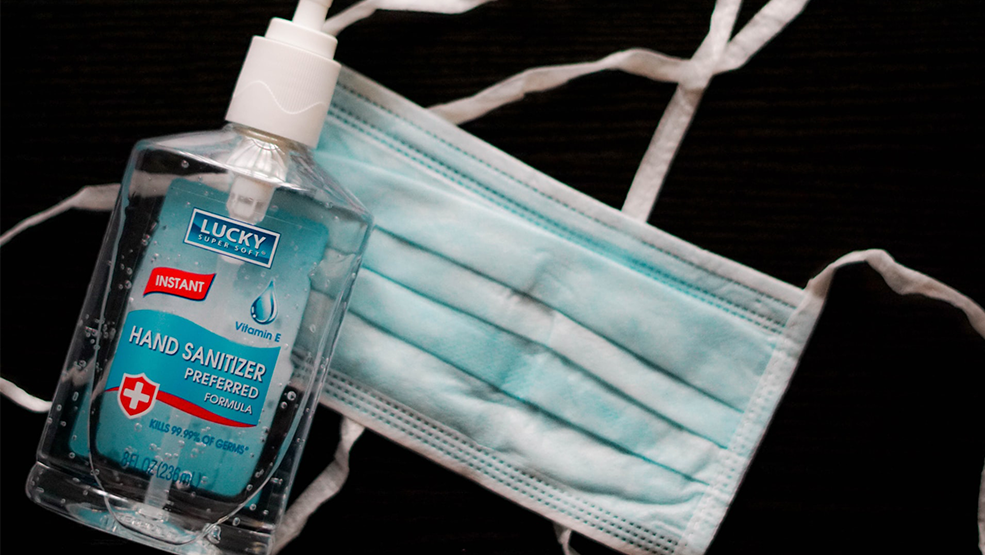
Face masks and hand sanitizers are essential tools to prevent the spread of COVID-19. But what if these essentials could be supercharged? HSCI researchers are developing bioengineered protective materials, including a nasal spray that could keep the virus from entering the rest of the body, and a new kind of long-lasting sanitizer.
Long before COVID-19 started making headlines, Jeffrey Karp was working on innovative technologies to treat a wide range of diseases. Now, he is adapting the technologies to fight viral infection.
“We have the capabilities, but these are extraordinarily challenging times to conduct research. Of course, it’s orders of magnitude more challenging for our colleagues on the clinical front lines, which is why we’re committed to finding ways to help,” said Karp, an HSCI principal faculty member at Brigham and Women’s Hospital.
Improved nasal protection
For the past year and a half, the Karp lab has been developing a nasal spray material that creates a physical coating along the inside of the nasal cavity, and can deliver therapeutics. Because the COVID-19 virus enters the body through the nasal system, the researchers are adapting the spray to capture and kill inhaled viruses. In addition to forming a physical barrier against the virus, the material could be loaded with antiviral agents to inactivate the captured virus.
“We’re trying to develop a nasal spray to form a shield to provide protection against inhaled pathogens and viruses,” said Nitin Joshi, a researcher in the Karp lab.
The team has expertise in selecting and working with materials that the FDA has designated as “Generally Recognized As Safe” (GRAS). Using these materials, Karp and his colleagues are developing a solution that, once inside the nasal cavity, will solidify into a thin barrier and release antiviral agents.
So far, the team has tested the solution on nasal tissue in the lab. Preliminary experiments in mice suggest that it does not impact breathing or cause irritation.
Extended-duration sanitizer
Alcohol-based hand sanitizers can kill viruses and bacteria, but are only effective for a short time. Using GRAS materials, the Karp lab aims to develop a long-lasting sanitizer.
“Hand sanitizers provide excellent defense in terms of protection from transmission, but need to be applied every time you touch any surface that may be contaminated with a virus,” said Joshi. “They can also leach out lipids from the skin, resulting in dry skin and cracks. Our idea is to develop a consumer product that could last several hours without causing dry skin, and deactivates the virus as soon as it touches the hand.”
The team envisions a product that would be similar to a moisturizer. They have been working with hydrogels containing GRAS agents, which could kill the virus and remain on the skin for hours after application.
Open to collaboration
The Karp lab is researching ways to decontaminate surgical gowns, masks, and gloves before removal. Karp is also involved in the Mass General Brigham Center for COVID Innovation, helping with new designs for N95 respirators.
“We’ve positioned our projects toward addressing elements of this pandemic, but we’re still working to get the right resources in place under the current circumstances,” said Karp. “We are open to support, collaboration and help from any corner so that we can continue to develop these materials to help our clinical colleagues.”
Read more
The original version of this story was published on the Brigham and Women’s Hospital news site on March 31, 2020.
